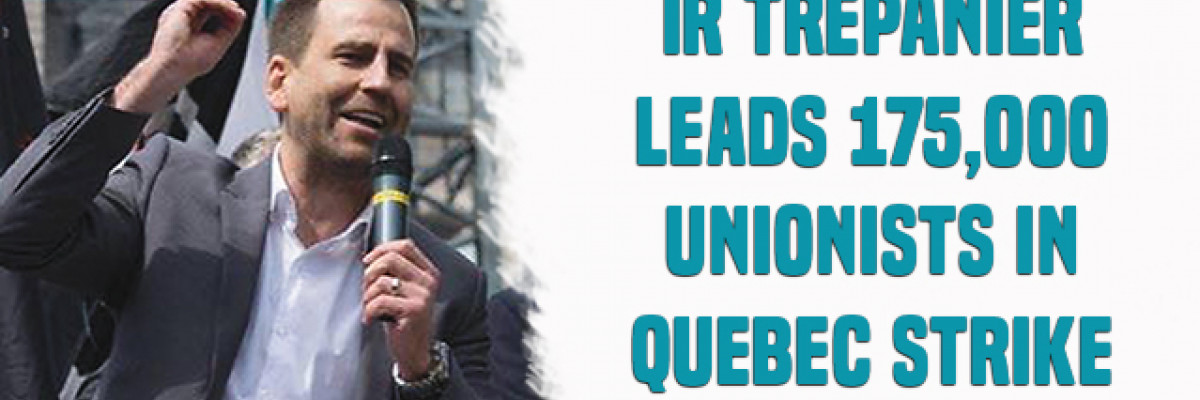Provincial government passes emergency law to force return to talks
MICHEL TRÉPANIER, AN International Rep for the Boilermakers and a former Local 271 (Montreal) business manager, led a province-wide, seven-day general strike May 24-30 involving 175,000 Quebec construction workers. The action temporarily shut down construction projects across Quebec.
The strike followed four months of tough contract negotiations with industry employers, whose demands are unacceptable to the five labor federations of the Alliance Syndicale. Trépanier heads one of the federations, the Quebec building trades, and was chosen as spokesperson for the entire alliance.
But with the strike barely underway, the provincial government moved to pass emergency legislation forcing the union to return to negotiations under the threat of stiff penalties. The two sides will have until October 31 to reach an agreement before government mediators establish terms of a new agreement.
Unionists decried the law as interfering with the rights of unions to take concerted action on behalf of their members.
“Our right to strike is gone,” said Trépanier, who in addition to serving as a Boilermaker International Rep is also President of the Quebec building trades. “We are going to contest the law before the Quebec Supreme Court.”
He said Quebec Premier Phillippe Couillard undercut the union’s leverage by signaling beforehand that he would seek strike-halting emergency legislation.
Trépanier said three key issues separate the unions and employers: work schedules, overtime and wage increases. Employers want far greater latitude in arranging worker schedules, potentially forcing workers to report at different hours of the day, from day to day. Such changes, he said, would create havoc in planning personal time away from the job, calling the proposal a quality of life issue.
Employers also seek to undermine overtime rules by discontinuing double-time pay if weekday rains interrupt job activity and force union members to work Saturdays.
With the strike idling construction projects throughout Quebec, the action brought considerable media attention and public discussion. Trépanier said he averaged about 20 interviews with broadcast and print outlets each day of the strike.
“The union movement was amazing,” he said. “Everyone was on the same page, and it was good to see such a high level of solidarity.” He said the unity displayed by Local 271 members, led by BM-ST Bruno Guilmette, was “especially inspiring.”
Trépanier noted that the union alliance used social media effectively to keep members informed of the negotiations and strike effort. “We were very active with Facebook and attracted 80,000 new users,” he said. “We used Facebook Live [a video streaming application] to broadcast our union meetings to workers across the province.”
Joe Maloney, IVP-Canada, praised Trépanier's leadership in marshalling overwhelming support from the five federations and their 175,000 workers. Ninety-five percent of the unionists approved the strike vote, and workers turned out by the thousands to rally at the Quebec parliament among other sites.








